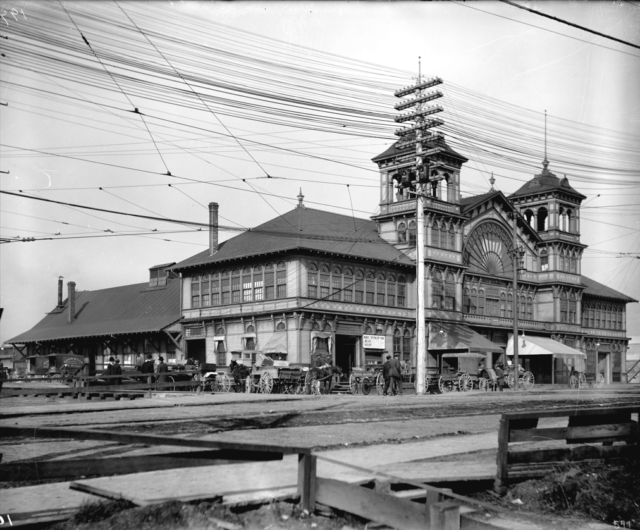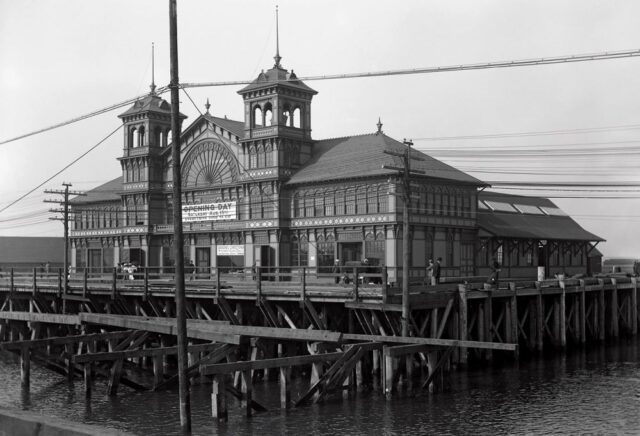
False Creek:
False Creek is a realtor’s dream. It’s a model of sustainability, with housing options—that include the condos and townhouses in the Olympic Village—a school, a seawall for walking and running and biking, and a waterway filled on any given day with kayaks and canoes and dragon boats. The neighbourhood has fitness facilities, outdoor play areas, breweries and artistic venues—even a science centre left over from the heyday of Expo 86. And, if you still have to leave its borders, downtown is just a short jog away.
Story: Vancouver Exposed: Searching for the City’s Hidden History
But in 1908, when Vancouver got its first farmers market, False Creek was a strange choice of location, with an abattoir for a neighbour and a streetcar ride from the city centre. False Creek covered about five times the area it does today, and City Market was accessible only by bridge. It was situated at the southwest intersection bordered by Main Street, Quebec Street and Terminal Avenue—rather ironically, where the McDonald’s parking lot is today.

City Market was an elaborate building, set on pilings, designed by William T. Whiteway. It had twin bell towers and large arched windows and looked like an exhibition hall.
Unfortunately, the market itself was a financial failure and limped along until it burned down in a spectacular and mysterious fire that originated from Pearson Iron Works at 3:30 a.m. on November 10, 1925.
© All rights reserved. Unless otherwise indicated, all blog content copyright Eve Lazarus.


